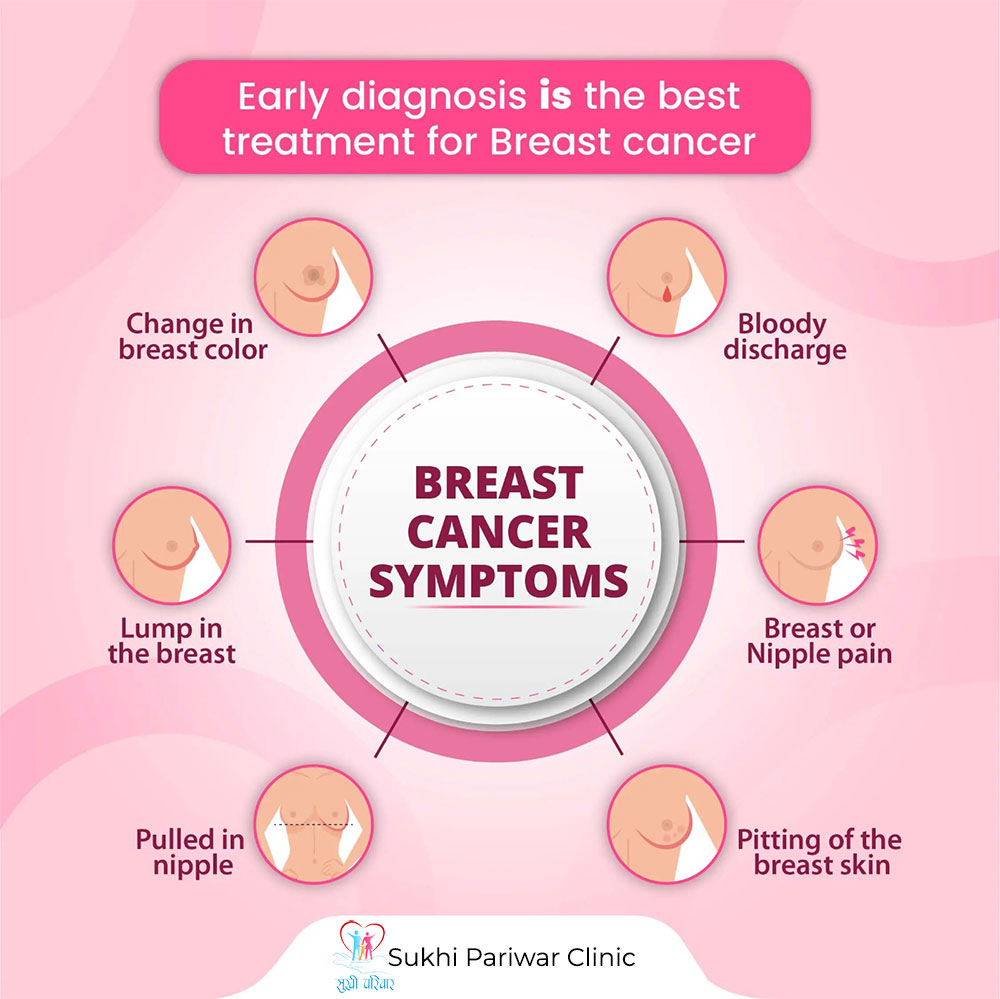What Are the Early Signs of Breast Cancer ?
Breast cancer is one of the most common cancers affecting women worldwide. The earlier it’s detected, the better the chances of successful treatment. That’s why it’s important to be aware of the early signs of breast cancer, so you can catch it in the earliest stages.
Early Signs of Breast Cancer
- A Lump in the Breast
One of the most common signs of breast cancer is finding a lump in the breast or underarm. Not all lumps are cancerous, but it’s important to get them checked by a doctor. - Changes in Breast Size or Shape
If you notice your breast changing in size or shape for no clear reason, it might be an early sign of breast cancer. This change can happen in one breast or both. - Breast Pain
Breast pain isn’t always linked to cancer, but some women with breast cancer experience discomfort or tenderness in the breast. If the pain doesn’t go away, it’s best to consult a doctor. - Skin Changes
Look out for any changes in the skin on your breast. Redness, dimpling (like an orange peel), or thickening of the skin can be a sign of breast cancer. - Nipple Discharge
Any unexpected nipple discharge, especially if it’s bloody, should be checked by a doctor. This could be a sign of breast cancer, even if you’re not breastfeeding. - Nipple Changes
If your nipple suddenly becomes inverted or changes its appearance, this might indicate breast cancer. In some cases, the skin around the nipple may also become scaly or crusty. - Swelling in the Armpit or Around the Collarbone
Swelling or lumps in the armpit or near the collarbone can be a sign that breast cancer has spread to nearby lymph nodes.
What to Do If You Notice These Signs
If you notice any of these signs, it’s important to visit a doctor as soon as possible. Regular self-examinations and mammograms are key to catching breast cancer early. Early detection improves the chances of successful treatment.
Being aware of the early signs of breast cancer can save lives. Pay attention to changes in your breasts, and don’t hesitate to seek medical advice if you notice anything unusual. Early detection is crucial for the best outcomes.

